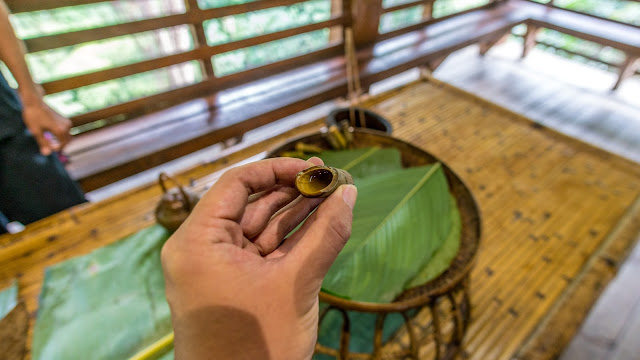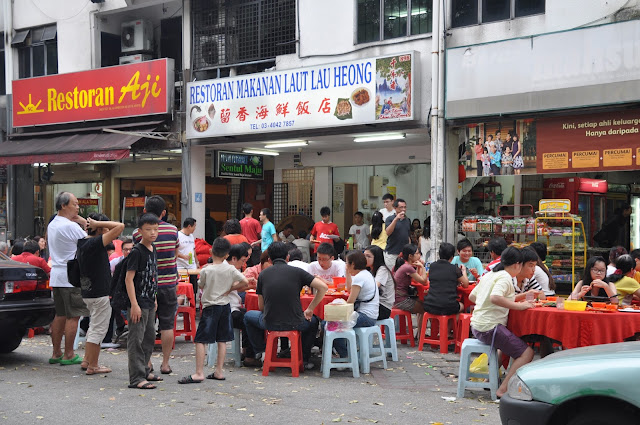Xishuangbanna Primitive Forest Park, Xishuangbanna
- Taking bus from Jinghong to Mengyang or the taking original forest park dedicated shuttle for visitors to get there.
- The west side of Jinghong is long-distance bus terminal, there is shuttle bus to reach the forest park for tourists.The fare is CNY 3.
 |
| On both side of sightseeing roads, there are two 68 meters long dragon stairs. To pray for Buddha blessing, visitors must climb the 286 steps to show his sincerity. |
 |
| The Hani village is reached via a suspension bridge. It spans a river below. An alternative to using the bridge is to cross the ravine by glider. |
 |
| You can join in to play and dance with the Hani people for free. Along the road, there is a description and explanation about Hani unique customs. The highlight is their marriage custom. |
 |
| We got a free taste of Hani people's homemade wine too. It was really strong but it helps you to survive the cold days. |
 |
| There are a site where you can see the monkeys roam freely and separated by a river from the tourists. The tourists are not advised to feed the monkeys. |
 |
| There is a zipline canopy adventure where you can cross between trees. You will just cross about 4 trees and it is over. The price is expensive too. Not worth it. Malaysia's Skytrex is more worthwhile. |
 |
| The best of all is still the cultural performance by 4 different tribes in Xishuangbanna. This is the Hani Tribe which is the 2nd largest minority ethnic in Xishuangbanna. |
 |
| This is Dai duan which is commonly known as White Dai. There are more at Jinping area. |
 |
| This is the Wa tribe who are very proud with their long hair. The Wa tribe population in Xishuangbanna is not very big but their tribe is related to Dai Tribe which is from Myanmar too. |
 |
| This is the Jino Tribe which is the last tribe out of 55 minority ethnics recognized by China government in 1979. |
 |
| There is a water splashing ceremony where the elephant will splash water on the tourists as the symbol of good luck or good fortune. Many of the tourists have avoided it from getting wet though. This is a custom for the Dai tribe. Overall, it is a good place to understand more about the tribes in Xishuangbanna but I recommend to visit Yunnan Minorities Village at Kunming to know all the 26 ethnic minorities in Yunnan instead of just Xishuangbanna. Anyway, you just need half a day to finish the tour. Not really long. So if you have the time, you still can spend some of your time here. |
Operating Hours: 7.00am - 6.00pm
Recommended?: 2/5





















Comments
Post a Comment